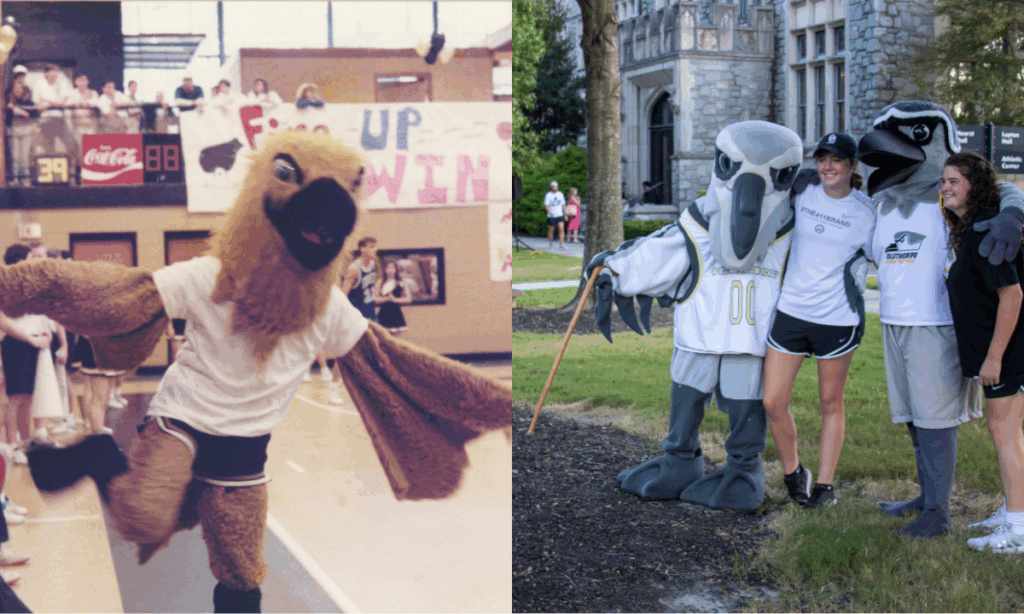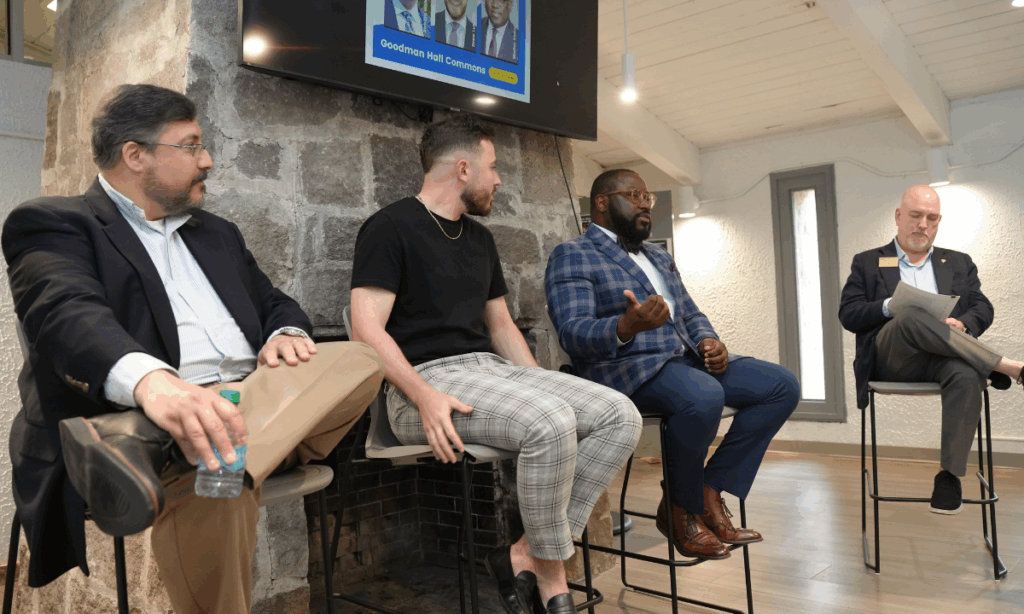Oglethorpe University expanded its scientific research opportunities this academic year through a promising new partnership with the Paul Duke STEM High School in Norcross.
Leveraging state-of-the-art laboratories in the Cousins Center, Oglethorpe is preparing students at the high school, college and even graduate school levels for careers in Science, Technology, Engineering and Math (STEM), as well as health care fields.
What began 14 years ago as a collaboration with Emory University to give OU students access to their facilities is now extending into the high school level, creating a pipeline for students to gain experience that will be directly applicable to their undergraduate and even graduate studies.
“Oglethorpe is the perfect place for this kind of partnership,” said Dr. Karen Schmeichel, professor of biology and the Fuller E. Callaway Professional Chair at Oglethorpe. “We have the infrastructure, and we’re accessible. Paul Duke has similar demographics, so this partnership is a good pairing.”

The relationship began when Paul Duke Advanced Placement (AP) Biology teacher, Dr. Tiffany Bookal, solicited various university laboratories in search of model organisms to culture in their class. She did some reading and determined C. elegans, the worm-like nematodes Oglethorpe grows and studies, would be perfect. That led her to Schmeichel and her collaborator at Emory University, Dr. David Katz.
“We were floored at how excited they were to collaborate with us,” Bookal said. “Our students are able to get research experience at Oglethorpe that they can’t get here. We just don’t have a whole lab like they do or the time to maintain it. So, some students get to do really in-depth research by going to Oglethorpe. Those volunteers also come back to school and mentor other students who don’t have the ability or aren’t old enough to go to Oglethorpe so that they can really do good work from school. It is a win for everyone.”
The Paul Duke students began working with Schmeichel and her students in the Oglethorpe labs in the fall. Their dedication to the neurodegenerative disorder research in C. elegans led the high school students—as well as the Oglethorpe students—to come into the labs over the winter break during the holidays.
Oglethorpe students benefited by supervising the high school students’ research and collaborating with them on their own projects. Together they learned to collaborate rather than compete as they reinforced a culture of inquiry-style learning.
“This partnership introduces our students to mentoring,” Schmeichel said. “It’s cross generational experience. It’s cross pollination that benefits both groups of students.”
Oglethorpe students Mackenzie Roberson ’24 and Jaely Chavez ’24 presented the research the Paul Duke students assisted with at the Allied Genetics Conference in Washington, D.C. earlier this year. The Paul Duke students were able to present their research both as part of the AP Research Methods class and for school, county and state science fairs.
With additional funding made available by Oglethorpe President Kathryn McClymond, Schmeichel will be able to provide research opportunities this summer to continue the partnership with Bookal and her Paul Duke students. And Paul Duke has built its own capability to grow the C. elegans in their lab with the help of Schmeichel and Katz.
“There’s a worm ecosystem taking off there,” Schmeichel said. “The science is state of the art. It’s exploded in the last 10 years, and these students are making real contributions. There’s a real opportunity here.”
Schmeichel is working on grants to expand the program to include other area high schools.
“We are trying to create this whole pipeline where all students in AP Biology can be exposed to worm culture and then select students can take that further in AP Research and AP Scientific Internship,” Bookal said. “I am so grateful for the support of Dr. Schmeichel, Dr. Katz, Oglethorpe, and Emory. If this is year one, I can’t wait to see how this collaboration evolves.”







